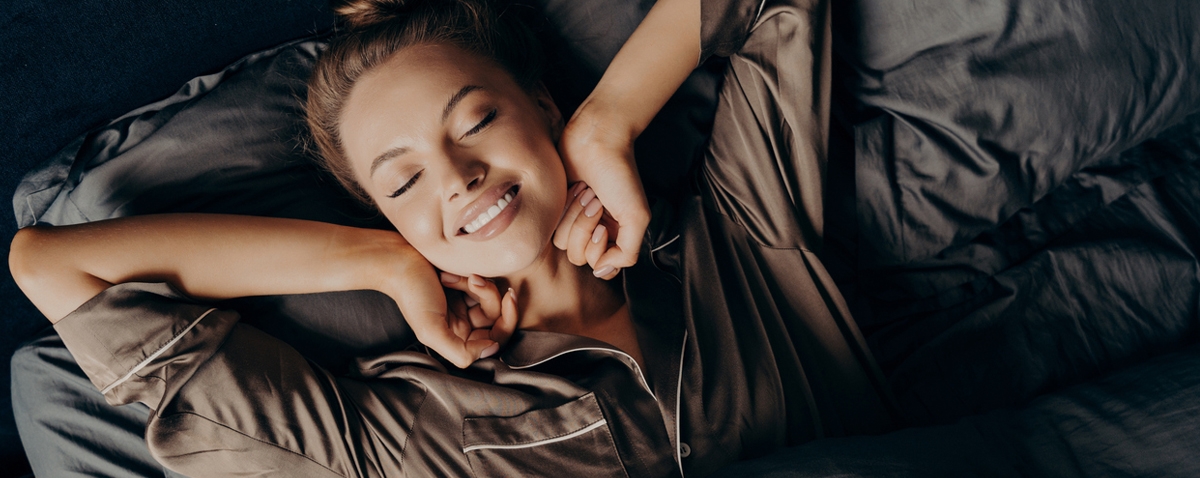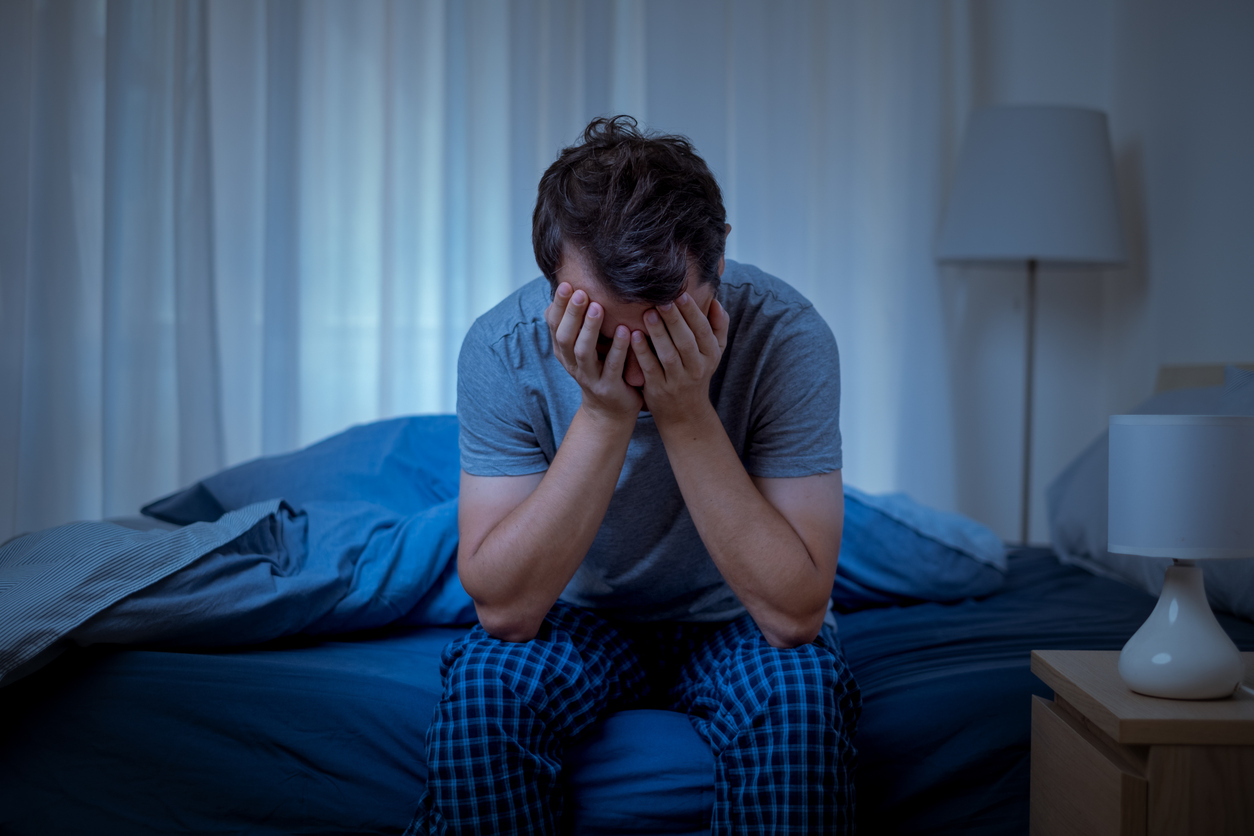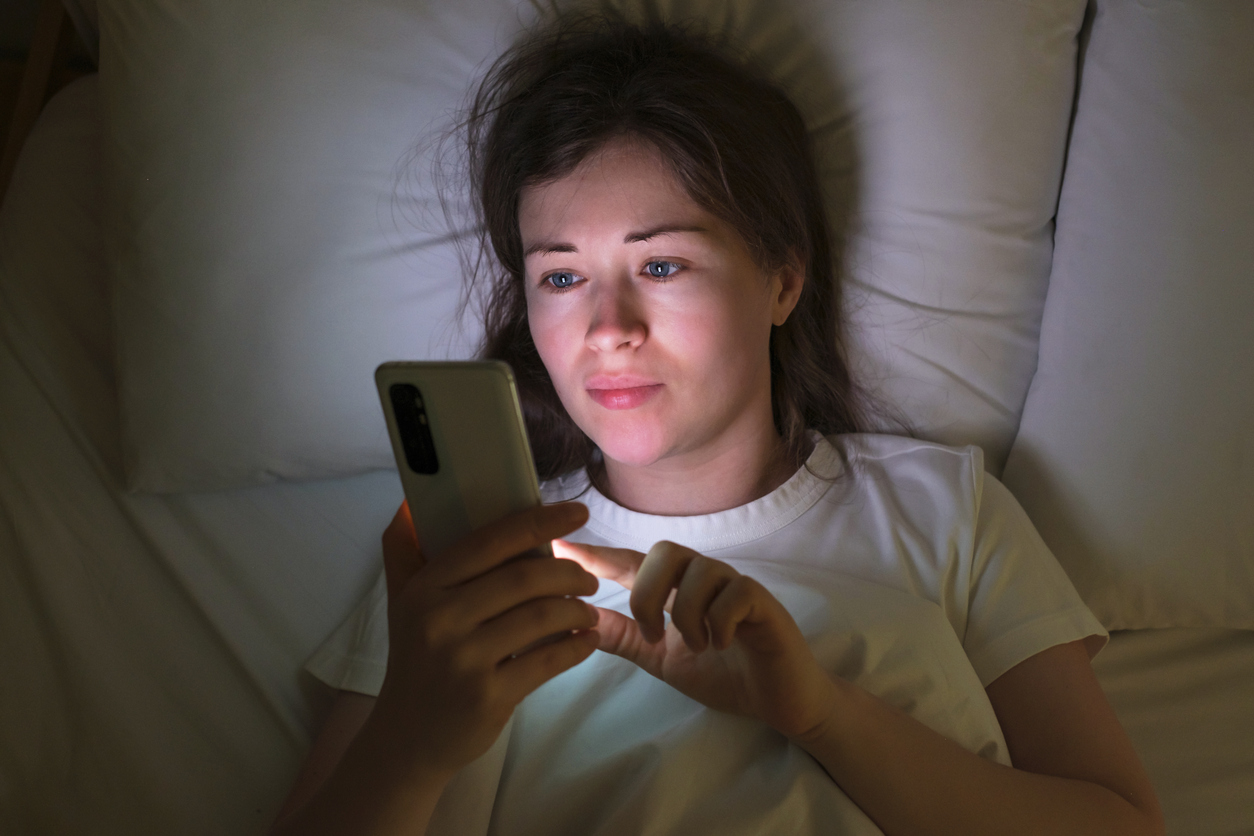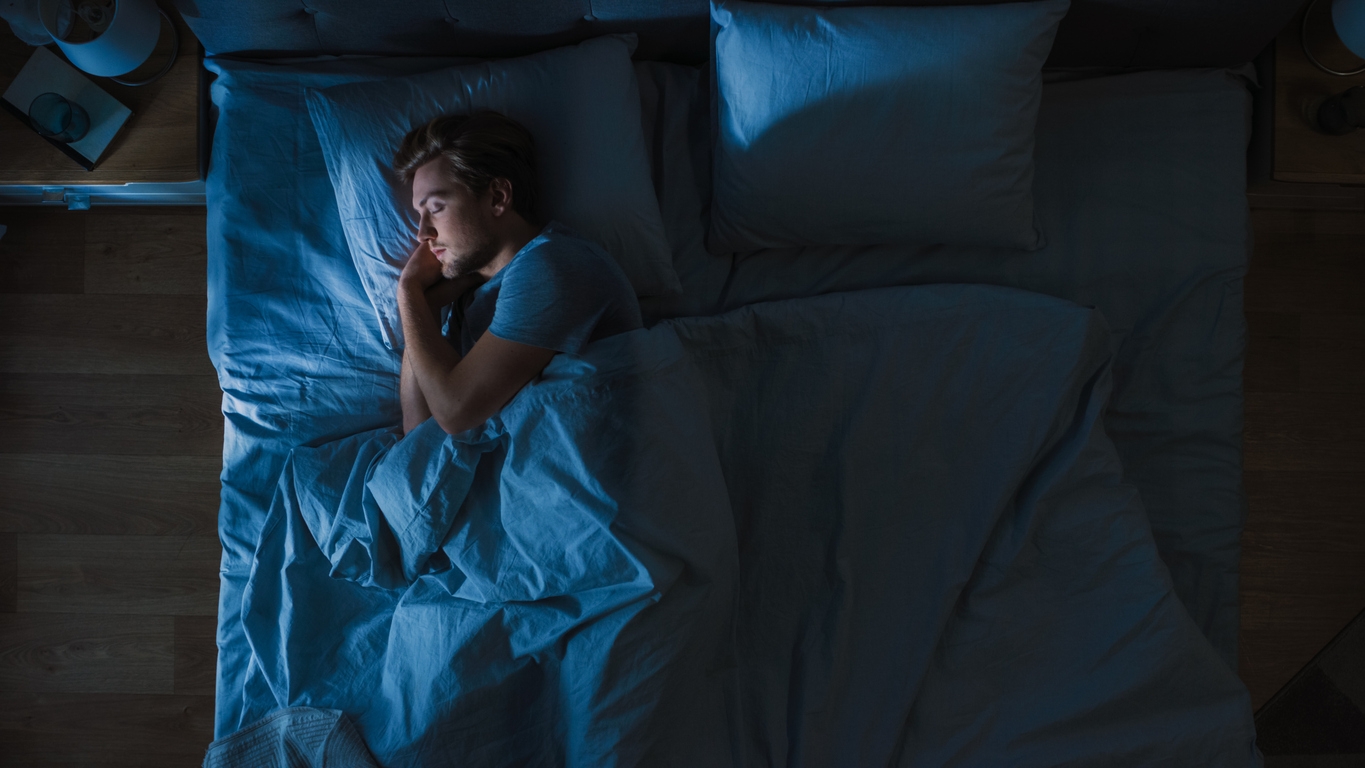Table of Contents
It is typical for adults to need around seven to eight hours of sleep every night in order to keep their bodies functioning properly. While some struggle to achieve this goal consistently, there are some lucky individuals for whom the need for regular sleep does not apply. These people possess what is known as the short sleep gene, which allows them to require less sleep than the average person. This article will explore what this gene is and how it affects sleep patterns.
What is the Short Sleep Gene?
The “Short Sleep Gene” refers to a genetic variant in some individuals that appears to allow them to function normally on less sleep than the average person. People who carry this gene variation typically sleep for about 4-6 hours a night and feel fully rested and alert during the day. The short sleep gene is a rare genetic mutation, and it’s estimated that less than 1% of the population has it. [1]
Up until recently, the short sleep gene was thought to be a mutation of a single gene, known as DEC2, which causes individuals to require fewer hours of sleep than most. [2] However, according to a study published in the journal Neuron, there are two more short sleep genes, the ADRB1 [3] and NPSR1. [4]
Those with any of these genes typically need around only four to six hours of sleep per night in order to function properly. Where an average person needs about eight hours of sleep, short sleepers are able to function on merely five or six. And, it’s not that they feel sleep-deprived, they simply don’t need a long rest to stay alert. What’s more? People with the short sleep gene have a greater ability to be productive during the day, even if they have had a shortened or disrupted night’s rest.
Importance of Sleep in Overall Health
Sleep is essential for overall health and wellness of both children and adults. It is well documented that those who get an inadequate amount of restful sleep often suffer from a number of negative side effects including fatigue, impaired cognitive functioning, and decreased productivity. In fact, getting too little sleep has been linked to an increased risk of conditions such as hypertension, obesity, depression, diabetes, heart disease, and stroke. [5]
Therefore, it is important that people strive to get enough quality rest each night in order to avoid these potential health risks. While possession of the short sleep gene may make some individuals more productive, it is important to remember that it should not be relied upon as a way to skimp out on getting the required amount of sleep each night.
Understanding the Short Sleep Gene
The discovery of the short sleep gene is an important breakthrough in the field of genetics and sleep research. In 2009, Dr Ying-Hui Fu, a neurology professor at University of California San Francisco, along with her team of researchers, identified a genetic mutation in a family of natural short sleepers. They required only about six hours of sleep per night, as opposed to the typical seven to eight hours.
This mutation was found in a gene called DEC2, which is involved in regulating the body’s circadian rhythms. The DEC2 mutation causes a reduction in the amount of sleep needed without any apparent negative effects on health or cognitive functioning.
This discovery has opened up new avenues for understanding the genetic basis of sleep and may have implications for the development of new treatments for sleep disorders. However, Dr. Fu and her colleagues didn’t think it was just any one gene or area of the brain telling our body to wake up or sleep. And, they were not wrong.
During the course of their research, which continued for a decade, a breakthrough came when they studied a family with three successive generations of natural short sleepers, who didn’t have the DEC2 mutation in their genome. They used gene sequencing and link analysis techniques to comb through the family’s genome, uncovering a single-letter mutation in a gene known as ADRB1 in 2019.
Later in the same year, the researchers identified a third gene. And, it’s the first that also appears to prevent memory deficits caused by normal sleep deprivation. They have zeroed in on a single-letter mutation in the NPSR1 gene. It encodes a protein that sits on the surface of neurons and is thought to be involved in regulating sleep.
All these genes are associated with short sleeping. But sleep experts point out that these mutations are extremely rare. Although a vast majority of the population sleeps for less than eight hours, not all are short sleepers. Most of us still need to sleep to be able to function properly.
Have you ever seen someone with different-colored eyes? Here are the odds of having them.
How Does Short Sleep Gene Affect Sleep Patterns?
The short sleep gene affects sleep patterns by reducing the amount of sleep needed by individuals who carry this gene mutation. Natural short sleepers typically need only about six hours of sleep per night, whereas most people require seven to eight hours. This reduction in sleep time is usually not accompanied by any negative effects on health or cognitive functioning.
The short sleep genes appear to affect the regulation of circadian rhythms, which are the body’s internal clock that regulates sleep-wake cycles. The DEC2 gene is involved in the production of a protein that plays a role in regulating the expression of other genes involved in circadian rhythms. The mutation in the DEC2 gene alters the function of this protein, leading to a reduction in the amount of sleep needed.
Similarly, the ADRB1 gene appears to encode a mutant form of the beta-1 adrenergic receptor protein which degrades more quickly than the non-mutant variation. This gene is highly expressed in dorsal pons in the brain, which regulates sleep. Further experiments showed that the wakefulness promoting neurons with the mutated version of ADRB1 are activated more easily hence, people who have it wake up quickly.
Familial natural short sleepers with the NPSR1 mutation not only sleep less, they are also more active. This is because the mutant NPSR1 behaves differently at a biochemical level. This gene is responsible for signaling the neural pathways that promote wakefulness. The mutant variation activates higher concentration of downstream protein in the neural pathways than the non-mutant one.
Those who possess the short sleep genes often report feeling fully rested after fewer hours of rest than most people. Short sleepers also tend to experience shorter periods of deep sleep as well as less overall restless sleeping patterns than those without it.
It is also likely that those with the short sleep gene have an increased tolerance for fatigue and are better able to recover from irregular sleeping patterns due to their naturally shortened sleeping periods.
What Are the Odds of Having Short Sleep Gene?
| Gene | Prevalence |
| DEC 2 | About 1% of population |
| ADRB1 | One in three million people |
| NPSR1 | Fewer than one in four million people |
The odds of having a short sleep gene are very rare. The discovery of the short sleep gene DEC2 was first made in a family of natural short sleepers, and subsequent studies have found very few individuals outside of this family who have the mutation.
The original study that identified the DEC2 mutation found that only 1% of the general population carries the mutation, but this number is still being studied and refined. [6] It is important to note that this estimate was based on a relatively small sample size. Dr. Fu and her research team studied 70 families with sleep problems at the university, and only one of those families carried the mutation. [7]
The ADRB1 and NPSR1 gene mutations are also very rare. The ADRB1 mutation occurs in about one out of three million people, and NPSR1 in fewer than one in four million people. More research is needed to fully understand the prevalence of the gene mutation and how it contributes to sleep patterns in different populations.
Plus, having the short sleep gene mutation does not necessarily guarantee that a person will be a natural short sleeper. While the mutation is associated with requiring less sleep, other factors, such as lifestyle and environmental factors, can also play a role in determining an individual’s sleep patterns.
Similarly, there may be other genetic factors that contribute to variations in sleep patterns, and not all cases of short sleep are due to gene mutation. Environmental and lifestyle factors, such as caffeine intake, stress levels, and exposure to light, can also influence sleep patterns. The treatment of such sleep disorders typically involves a combination of behavioral interventions and medication.
So while the discovery of the short sleep gene is an important breakthrough in the field of genetics and sleep research, most people who have difficulty sleeping or staying awake are unlikely to have the mutation. Overall, while the odds of having the short sleep gene mutation are low, further research may help us better understand the genetic factors that contribute to individual differences in sleep needs.
Do you know the odds of being left-handed? Find out today.
Interesting Facts
- Natural short sleepers don’t need eight hours of sleep. They can function normally with four to six hours of rest, without any adverse health effects.
- Familial natural short sleeping is caused by mutation on three known genes: DEC2, ADRB1, and NPSR1. All of these appear to play a part in sleep regulation.
- Dr. Ying-Hui Fu, a neurology professor at University of California San Francisco, and her team discovered all three known short sleep genes in 2009 and 2019.
- The discovery of the short sleep gene was first made in a family of natural short sleepers who had no known health problems and did not report any negative effects on their daily functioning.
- Not all people who sleep less are short sleepers.
- Short sleep genes are extremely rare. It is prevalent in less than 1% of the world’s population.
- Having a short sleep gene doesn’t always mean that the carrier will sleep less.
- Short sleepers appear to have higher cognitive abilities. They are optimistic, energetic, and good at multitasking. [8]
Conclusion
Having a short sleep gene is a relatively rare occurrence and it is important to remember that this gene may influence people’s sleep patterns in different ways. Those who possess the short sleep gene are able to enjoy greater productivity levels. However, it is important to remember that everyone has different needs when it comes to getting their rest each night, and getting too little can have serious negative impacts on overall health.
Everyone has different needs when it comes to getting their rest each night. Getting too little can have serious negative impacts on overall health. Even if you think you are a short sleeper, make healthy sleeping habits that include creating a consistent bedtime routine, regular exercise, and practicing relaxation techniques to ensure that you get a restful sleep every night.
References
- Harmon, K. (2009, August 13). Rare genetic mutation lets some people function with less sleep. Scientific American. https://www.scientificamerican.com/article/genetic-mutation-sleep-less/
- He, Y., Jones, C. R., Fujiki, N., Xu, Y., Guo, B., Holder, J. L., Rossner, M. J., Nishino, S., & Fu, Y. (2009). The transcriptional repressor DEC2 regulates sleep length in mammals. Science, 325(5942), 866-870. https://doi.org/10.1126/science.1174443
- Shi, G., Xing, L., Wu, D., Bhattacharyya, B. J., Jones, C. R., McMahon, T., Chong, S. C., Chen, J. A., Coppola, G., Geschwind, D., Krystal, A., Ptáček, L. J., & Fu, Y. (2019). A rare mutation of β1-adrenergic receptor affects sleep/Wake behaviors. Neuron, 103(6), 1044-1055.e7. https://doi.org/10.1016/j.neuron.2019.07.026
- Xing, L., Shi, G., Mostovoy, Y., Gentry, N. W., Fan, Z., McMahon, T. B., Kwok, P., Jones, C. R., Ptáček, L. J., & Fu, Y. (2019). Mutant neuropeptide S receptor reduces sleep duration with preserved memory consolidation. Science Translational Medicine, 11(514). https://doi.org/10.1126/scitranslmed.aax2014
- What are sleep deprivation and deficiency? (n.d.). NHLBI, NIH. https://www.nhlbi.nih.gov/health/sleep-deprivation
- Wescott, E. (2017, February 21). Short sleepers: The 1 percent of the population who only need six hours of sleep. Chronobiology.com. https://www.chronobiology.com/short-sleepers-1-percent-population-need-6-hours-sleep/
- Lusinski, N., & Dimitriu, A. (2021, August 20). What is short sleeper syndrome? Why some people, like Barack Obama, only need 6 hours of sleep a night. Insider. https://www.google.com/amp/s/www.insider.com/guides/health/short-sleeper-syndrome%3famp
- The superhuman ‘short sleepers’ who need just 4 to 6 hours but outperform us. (n.d.). https://www.google.com/amp/s/gulfnews.com/amp/friday/wellbeing/the-superhuman-short-sleepers-who-need-just-4-to-6-hours-but-outperform-us-1.1649426067994



